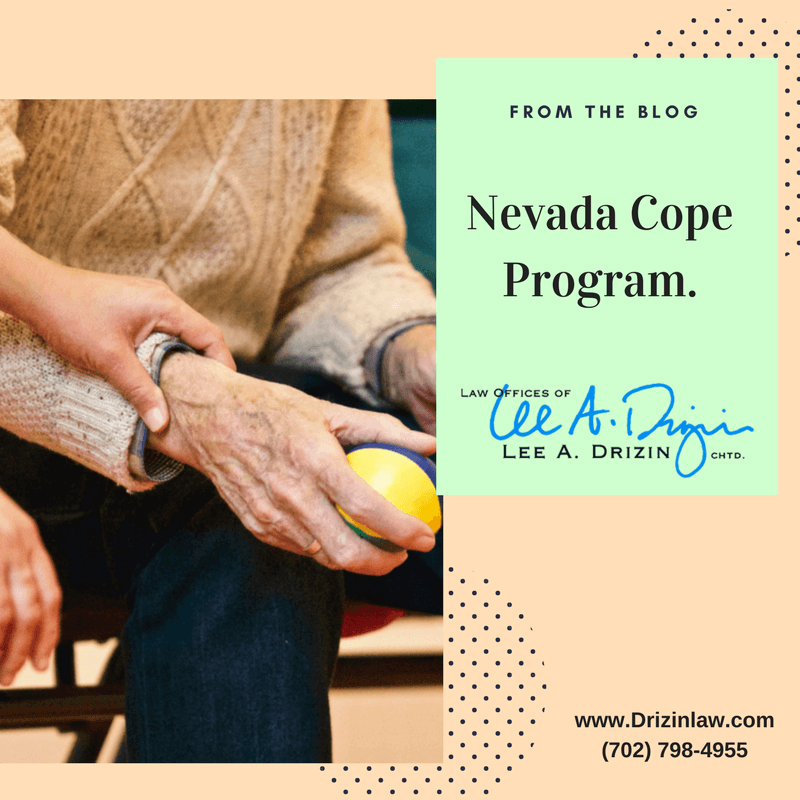What caregivers should know about Nevada’s COPE Program.

Other types of services include: non-medical care, supervision and socialization in the senior’s home to provide temporary relief for the primary caregiver; electronic device that enables individuals at high risk of institutional placement to secure help in the event of an emergency; and short-term relief up to 24-hours of care for the primary caregiver.
To be eligible for services, an individual must be 65 years of age or older; be at risk of nursing home placement if services are not provided; and be financially eligible. If you believe that you or someone you know may be in need of COPE services, contact the Nevada Aging and Disability Services Division at (702) 486-7670 to determine if they qualify.
Drizin Law is providing this legal update for educational purposes only. This article should not be construed as legal advice or a legal opinion as to any specific facts or circumstances. This information is based on general principles of Nevada law at the time it was created. The laws affecting you may differ, depending on the circumstances. You should consult with a qualified attorney concerning your particular situation and any specific legal questions you may have.







